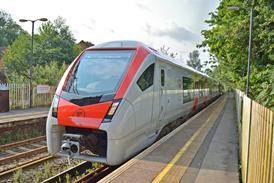RUMBLES of discontent can be heard in Japan and Taiwan about progress with the 346 km Taipei - Kaohsiung high speed line. Last December, when Taiwan High Speed Rail Corp signed the Core System agreement with Taiwan Shinkansen Corp in Tokyo (RG 3.01 p186), there was an understanding that Japanese firms would provide a complete package of mechanical and electrical equipment.
Details have not been made public, but there appeared to be a view in Japan that the deal covered trains, track, signalling and practically everything else that was not in the civil engineering contracts. In practice, it has not worked out quite like that, as THSRC, essentially a private sector organisation, is keen to keep costs down.
With this in mind, on August 7 it called the first of five competitive tenders for trackwork on the 60 km test section that runs from a point north of Kaohsiung to just south of Chiayi. The remaining trackwork tender documents were to be issued later last month. Most of the main line will have slab track, but there will be ballasted track on a short section at the southern end and in the depots; 60 kg/m rail has been specified. The bidding opens up the possibility of European companies winning the track contracts, which has horrified the Japanese as shinkansen trains would not be running on track identical to that in use on domestic services.
Formal protests have been lodged with THSRC, and it now looks increasingly likely that the row will escalate. On the face of it, provided that wheel profiles and other wheel-rail interface parameters are met, there is no reason why Series 700 shinkansen trains should not operate on different trackforms. Indeed, track on the Tokaido and Sanyo shinkansen is not of uniform design, while a Japanese bogie is currently on test under an ICE trainset in Germany as part of a joint high speed research programme. In any case, contractors’ proposals are being vetted by a group of independent engineering consultants that includes British, Swiss, French and German firms.
The Japanese are taking the issue very seriously, partly because they are anxious that nothing should happen that could jeopardise the shinkansen’s image in terms of its superb record of safety and reliability. Should the difference in opinion not be resolved quickly, the project may suffer delay, with the October 2005 opening date put in jeopardy.
All this is being monitored by EuroTrain, the consortium which lost out to TSC for the core contract. Arbitration planned for Singapore has now moved to New York, and may come to a head shortly.




















